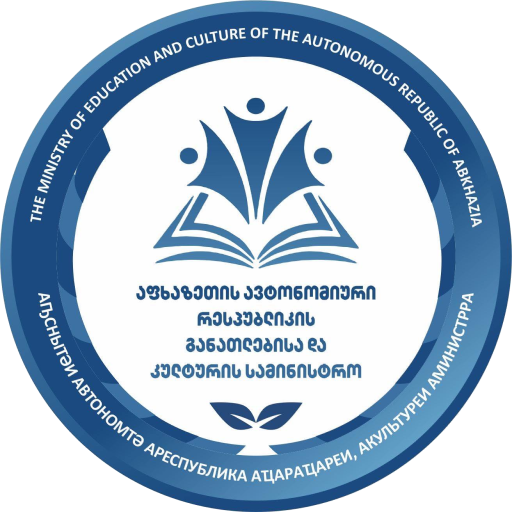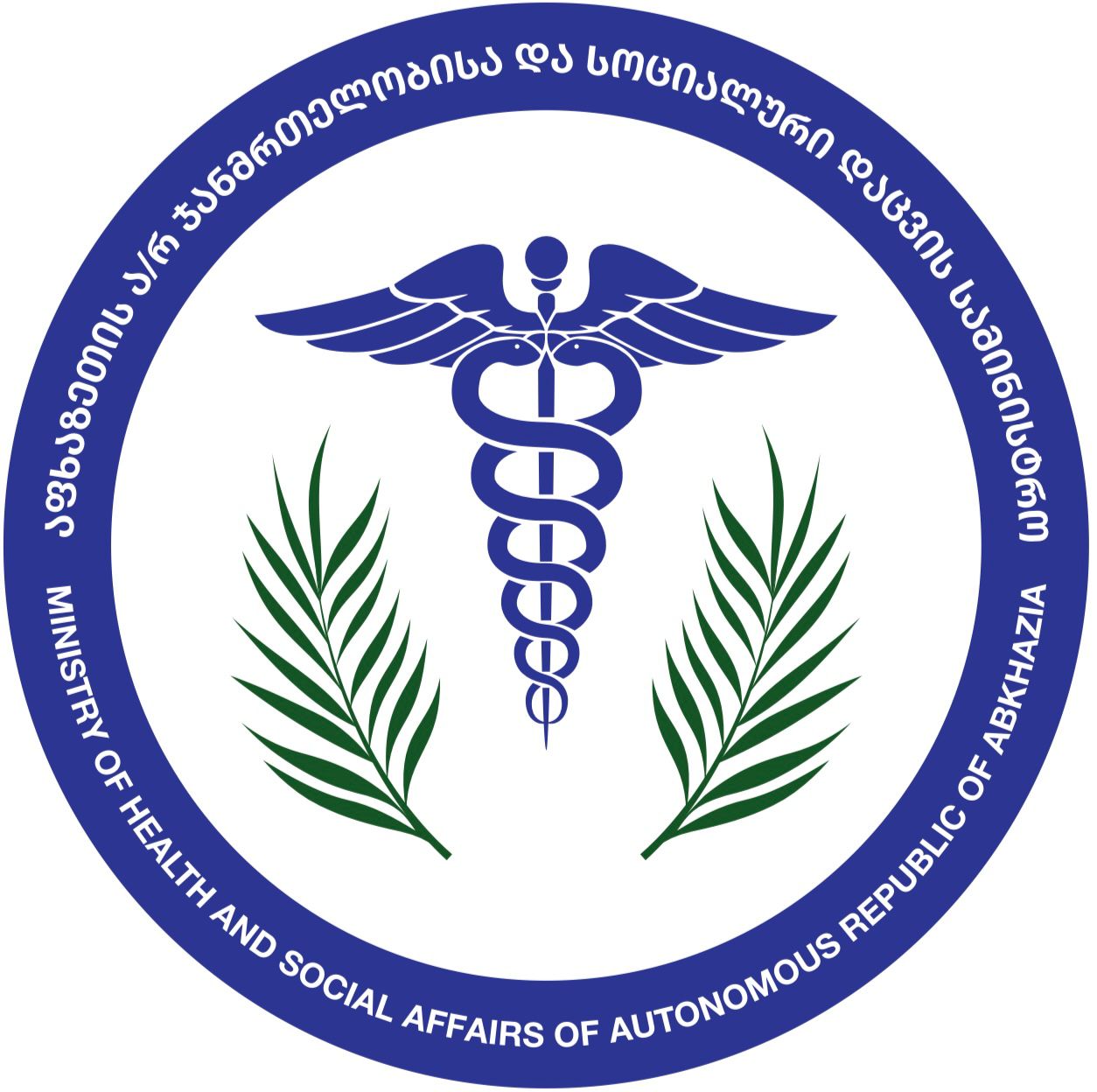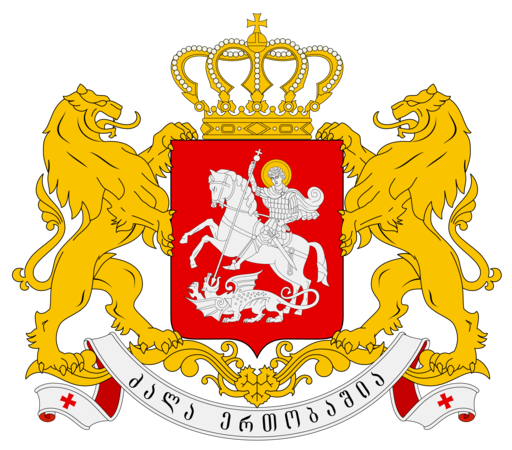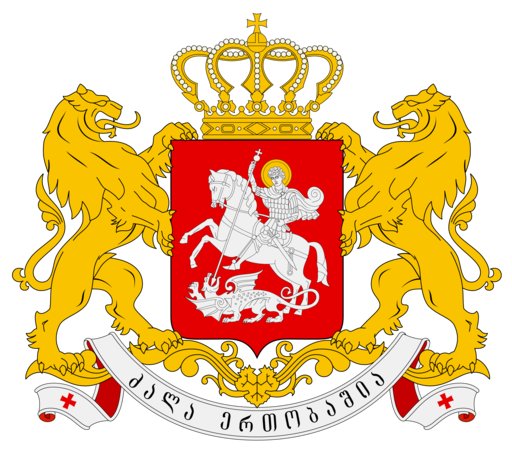დიალოგი კულტურის ენაზე - კონფლიქტის მოგვარების
არაპოლიტიკური ასპექტები
სალომე კაპანაძე
ასოცირებული პროფესორი
გასულმა საუკუნემ მძიმე ისტორიული მემკვიდრეობა დაგვიტოვა ისეთი დესტრუქციული მოვლენის თვალსაზრისით, როგორიც ომი და ეთნოკონფლიქტებია. ღირებულებათა გადაფასებისა და ახალი წესრიგის დამყარების მცდელობებმა საზოგადოებრივი ცნობიერების თითქმის ყველა დონეზე პერმანენტული ხასიათი სწორედ პოსტსაბჭოთა სივრცის ქვეყნებში მიიღო და ცნობილი ამერიკელი ანთროპოლოგის სტეფან შენფილდის თქმით, იდეოლოგიური და ფსიქოლოგიური დეზორიენტაცია გამოიწვია. თუმცა ასეთ კრიზისულ სიტუაციებში, როდესაც ეთნოცენტრიზმი და ნაციონალიზმი საშიშ მასშტაბებს აღწევს და ყველანაირი ინტელექტუალური არგუმენტი არამარტო შეუსმენადი, არამედ იგნორირებულია, მაინც ჩნდება მოთხოვნილება კულტურათა დიალოგზე. სიძულვილითა და დეჰუმანიზაციით დაზაფრულ სივრცეში ადამიანები იწყებენ გამოსავლის ძიებას და ამ დროს ცხადი ხდება, რომ ,,მშვიდობის ტაძრამდე" მისასვლელი გზის მნიშვნელოვანი წილი კულტურაზე გადის. ემოციათა დაცხრომის ამ საფეხურზე საზოგადოების გონიერი ნაწილი კრიტიკული თვალით უმზერს იმას, რაც ცოტაოდენი ხნის წინ მესიანიზმისა და ეროვნული გამორჩეულობის იდეებით განიცდებოდა. იწყება კათარზისის პროცესი და ბრძოლა იმისათვის, რათა არ დაუშვან ამის გამეორება. სამყარო თითქოს პატარავდება და მშვიდობის ელჩების სამიზნე ხდება. კულტურა ახერხებს იმას, რასაც ზოგჯერ პოლიტიკოსები ვერ აღწევენ. ეს ფაქტი იმ კანონზომიერებაში ჯდება, რომლის თანახმად შემოქმედი ყოველთვის იღებს ვალდებულებას დაეხმაროს ადამიანს საკუთარ თავში სიმართლე მოიძიოს. ეს პროცესი მუდმივ კავშირშია კულტურის, როგორც კაცობრიობის კეთილი ნების ფენომენის აღიარებასთან სიკეთის, სიყვარულისა და მშვიდობის დასამკვიდრებლად. არ შეიძლება არ დაეთანხმო ზიგმუნდ ფროიდს, რომელიც თვლიდა, რომ კულტურა კაცობრიობის სინდისია. რომ იგი ისე მჭიდროდ არის დაკავშირებული ,,ზე-მე"- სთან ანუ სუპერ- ეგოსთან, რომ მათი გამიჯვნა შეუძლებელია.
ქართული პოლიტიკური რეალობის ისეთ ტრაგიკული მოვლენა, როგორიც გახლავთ აფხაზეთისა და სამაჩაბლოს კონფლიქტები, მიუხედავად მრავალწლიანი რუტინული მოლაპარაკებებისა მოუგვარებელია. თუკი შეიძლება სადინარი მოუძებნოთ ამ სამწუხარო სტაგნაციას, ეს სახალხო დიპლომატია და კულტურის ეგიდით წარმოებული დიალოგია, სადაც აშკარად საგრძნობია პოზიტიური შედეგები. მიუხედავად ამისა, სახელმწიფოს მხრიდან ეს რესურსი ბოლომდე არ არის გააზრებული და იგი ლოკალურ ხასიათს ატარებს. ისტორიული მეხსიერების, კეთილი ტრადიციების, კულტურული ღირებებულებების თანხვედრა და მათი გააქტიურება კონფლიქტის დასაძლევად რომ ძალზედ ეფექტურია, ამას ევროპელი ექსპერტებიც აღიარებენ და საქართველოში ქართულ-აფხაზური კონფლიქტის მოგვარების პროცესში განსაკუთებულ მნიშვნელობას ანიჭებენ. სწორედ ამ საერთო ფასეულობებისა და კულტურული ტრადიციების შენარჩუნების საფუძველზე განიხილავენ ისინი ადამიანური ურთიერთობების აღდგენის პერსპექტივას. მართალია, შესარიგებლად გაწვდილი ხელი ხშირად რჩება უპასუხოდ და ეს ჰუმანური აქტი ერთმნიშვნელოვნად შედეგიანი ყოველთვის არ არის. მაგრამ ისიც უნდა გავითვალისწინოთ, რომ პოსტკოფლიქტურ პერიოდში აბსოლუტურ შედეგიანობაზე გათვლილი, უნივერსალური ფორმულა არ არსებობს. სასურველ შედეგამდე მისასვლელი გზები რთული, წინააღმდეგობით აღსავსე და ზოგჯერ არაპროგნოზირებადიც შეიძლება იყოს.
იმის საილუსტრაციოდ, რომ პოსტკონფლიქტურ პერიოდში ადამიანური ურთიერთობების აღდგენის თვალსაზრისით დიალოგი კულტურის ენაზე შეიძლება იყოს გაცილებით პროდუქტიული, ვიდრე ქაღალდზე დარჩენილი რომელიმე მორიგი პოლიტიკური შეთანხმება, წარმოგიდგინოთ კონკრეტულ ფაქტობრივ მასალას. საუბარი უსათუოდ უნდა დავიწყოთ ქართულ თეატრალურ სივრცეში განხორციელებული საინტერესო სპექტაკლით, რომელიც ჩვენი სამიზნე აღმოჩნდა არამხოლოდ მხატვრულ-ესთეტიკური თვალსაზრისით, არამედ იმ შედეგიანობის გათვალისწინებით, რომელიც მან მოგვცა კულტურული დიალოგის ფორმატისათვის. 2005 წელს სოხუმის კ. გამსახურდიას სახ. სახელმწიფო დრამატულ თეატრში დაიდგა სპექტაკლი ,,ზღვა, რომელიც შორია". პიესის სცენარი ეკუთვნის არაერთი საინტერესო კულტურული პროექტის ავტორს, სოხუმელ მწერალს გურამ ოდიშარიას. დადგმა- ცნობილ რეჟისორს თემურ ჩხეიძეს, რომელსაც თანარეჟისორობა გაუწია ნიჭიერმა ახალგაზრდა სოხუმელმა რეჟისორმა ბადრი წერედიანმა. სპექტაკლში თემურ ჩხეიძის გამოჩენამ რეჟისორის ამპლუაში იმთავითვე დიდი მოლოდინი წარმოშვა, რასაც დაერთო ინტელექტუალურ მსახიობთა გუნდიც. სპექტაკლში მთავარ როლებს ასრულებდნენ აფხაზეთელი მსახიობები-საქართველოს სახალხო არტისტი დიმიტრი ჯაიანი, მერაბ ბრეკაშვილი, ლილი ხურითი, ნუგზარ ჩიქოვანი, მერაბ ყოლბაია. საგანგებო აღნიშვნა, რომ მსახიობები იყვნენ აფხაზეთიდან იმისთვის დაგვჭირდა, რათა ხაზი გაუსვათ იმ გარემოებას, რომ ამ სპექტაკლში მოხდა ნიჭიერი სახიობისა და რეალურად განცდილის გულწრფელი თანხვედრა. სცენაზე წარმოდგენილმა აფხაზეთის ტრაგიკული მოვლენების განცდის პროცესმა მიიღო იმდენად ცოცხალი სახე, რომ ემოციურად დამუხტული მაყურებელი სპექტაკლის მსვლელობისას დიალოგშიც კი ერთვებოდა. ამ სპექტაკლმა ქართულ საზოგადოებაში რეალურად წარმოშვა აფხაზეთის კონფლიქტის მიზეზების ხელახალი განაზრებისა და თვითშეფასების სურვილი, მაგრამ ყველაზე თვალსაჩინო პოზიტივი ამ სპექტაკლს ელოდა მაშინ, როცა კონფლიქტის ზონაში DVD ფორმატში ჩაწერილი სპექტაკლის ჩვენება განხორციელდა, თანაც არაერთხელ. დადასტურებული ინფორმაციით, სოხუმის უნივერსიტეტში მოეწყო არამარტო ამ სპექტაკლის ვიდეო ჩანაწერის ჩვენება, არამედ იგი გახდა სერიოზული განხილვის საგანი ახალგაზრდებს შორის. ეს კი გახლავთ აფხაზური საზოგადოების ის ნაწილი, რომელსაც გასაგები მიზეზების გამო ქართულ-აფხაზური ურთიერთობებზე მსჯელობა მხოლოდ 1992-1993 წლის მოვლენებზე დაყრდნობით შეუძლია . ძალიან შთამბეჭდავი გვეჩვენა რეჟისორ ბადრი წერედიანის მონათხრობი იმის შესახებ, თუ როგორ შეთავაზა მან ქ. ერევანში ,,აფხაზეთიდან იძულებით გადაადგილებულ ქალთა არასამთავრობო ორგანიზაცია-თანხმობის" მიერ ორგანიზებულ შეხვედრაზე აფხაზ ახალგაზრდებს სპექტაკლის ვიდეო ჩანაწერის ნახვა. როგორ გაირღვა მის თვალწინ უნდობლობისა და ეჭვის ატმოსფერო სეანსის დასრულებისთანავე და როგორ შეძრა იგი აფხაზი ჭაბუკის მიერ ნათქვამმა ფრაზამ - ,,ეს არის ჩვენი საერთო სპექტაკლი". სპექტაკლის ვიდეოჩანაწერის ნახვამ აფხაზი ახალგაზრდის აზროვნებაში გააღვიძა ზოგადადამიანური განცდა იმისა, რომ შეუძლებელია ადამიანების გამოდევნა საკუთარი წარსულიდან. სწორედ ეს წარსული კრავს ქართულ-აფხაზური ურთიერთობების მატიანეს და სამომავლო ურთიერთობების პერსპექტივასაც.
2009 წელს სპექტაკლის ,,ზღვა, რომელიც შორია" ჩვენება შედგა ქ. სოჭში საქართველოს ხალხთა ასამბლეაზე. სპექტაკლს ესწრებოდნენ ქალაქის სახელისუფლო წრეების წარმომადგენლები, რუსი, ოსი და აფხაზი მაყურებელი. ერთ-ერთი მთავარი როლის შემსრულებელი მსახიობი ლილი ხურითი საუბრობს იმ რეაქციაზე, რომელიც ამ სპექტაკლმა გამოიწვია მათში. გაჩნდა საოცარი სინანულის გრძნობა და რაც მთავარია, ამის გამოხატვის შინაგანი მოთხოვნილება. აფხაზი და ოსი მაყურებელი მიდიოდა მსახიობებთან, ცდილობდნენ არამარტო იმწუთიერი კონტაქტის დამყარებას, არამედ საუბრობდნენ სამომავლო ურთიერთობებზეც. ფაქტი სახეზეა, ეჭვს არ იწვევს ის გარემოება, რომ ამ შესანიშნავ სპექტაკლმა შეძლო იმ რეალური ცვლილებების გამოწვევა კონფლიქტის სხვადასხვა მხარეს დარჩენილ ადამიანთა ცნობიერებაში, რომელიც მათ ურთიერთობების აღდგენასა და მშვიდობიან თანაცხოვრებაში უნდა დაეხმაროს. და ბოლოს, არ შემიძლია არ მოვიხმო ის სიტყვები, რომელიც ერთ-ერთმა ინგლისელმა კონფლიქტოლოგმა სპექტაკლის მორიგი ჩვენების დროს წარმოთქვა, წელს რომ ნობელის პრემია გაიცემოდეს მშვიდობის დარგში, უსათუოდ ამ სპექტაკლს მივანიჭებდიო. ეს ფრაზა, რომელიც იმ შთაბეჭდილებებით იყო მოტივირებული, რომელიც ამ სპექტაკლმა გამოიწვია, კიდევ ერთხელ ცხადყოფს მის არამარტო კულტურულ ფასეულობას, არამედ სამშვიდობო მისიასაც.
2008-2009 წლებში ქართული ესტრადის ცნობილმა მომღერლებმა ლელა წურწუმიამ, უცნობმა, ზუმბამ აფხაზურ ენაზე ჩაწერეს თავიანთი პოპულარული ჰიტები. იმ ,,საჩოთირო" ფაქტს, რომ ამ სიმღერებს ქართველი მომღერლები ასრულებენ, ხელი არ შეუშლია აფხაზი ახალგაზრდებისათვის საყვარელ ჰიტებად ექციათ ისინი.
2009 წელს საქართველოს კულტურისა და ძეგლთა დაცვის სამინისტროს ხელშეწყობით ცნობილმა კოლექციონერმა, საქართველოს 2004 წლის მოწვევის პარლამენტის წევრმა. პაატა ქურდოვანიძემ განახორციელა პროექტი- ,,ქართულ-აფხაზური ალბომი", რომელშიც თავი მოუყარა ქართულ-აფხაზური ურთიერთობების ამსახველ უნიკალურ, უძველეს ფოტო-მასალას, ისტორიულ ფაქტებსა და აფხაზ მოღვაწეთა ბიოგრაფიებს. ეს არის ქართულ-აფხაზური ურთიერთობების ბუნებრივი ქრონიკა და არა ისტორიის მულიაჟი. ამ ალბომის მთავარი ლაიტმოტივი სწორედ თაობათა ურთიერთპატივისცემისა და ურთიერთპასუხისმგებლობის საკითხია. პრეზენტაციაზე ამ წიგნს სამართლიანად უწოდეს ,,სიყვარულის გზავნილი". დადასტურებული ინფორმაციით, ერთმა აფხაზმა ქალბატონმა ამ წიგნის ნახვისას ემოცია ვერ დამალა და სამართლიანად აღნიშნა, ეს წიგნი ახალგაზრდებმა რომ ნახონ, ისინი უსათუოდ იამაყებენს თავისი წარსულითო. ჩვენის მხრიდან დავძენდით, ეს ის წარსულია, სადაც ქართველები და აფხაზები მეგობრობის, ნათესაობის, ,,მორდუობის" ტრადიციებით არიან შეკრული. ამდენად, კულტურულ პროდუქტი ყოველთვის შეიცავს იმ ფასეულობას, რომლის ჩანაცვლება შეუძლებელია პოლიტიკური მოლაპარაკებებით.
კულტურული დიალოგის თვალსაზრისით გამორჩეულ ფაქტად მინდა ვაღიარო 2011 წელს მედიასივრცეში გაჩენილი ახალი ალმანახი ..სამხრეთ კავკასია". მისი რედაქტორები არიან გურამ ოდიშარია და ბათალ კობახია. ამ ეტაპზე უკვე გამოცემულია მისი რამდენიმე ნომერი და იგი თვალსაჩინო, ეფექტური მაგალითია კულტურის ენაზე წარმოებული დიალოგისა, ვინაიდან ალმანახში წარმატებით თანამშრომლობენ სომეხი, აზერბაიჯანელი, ოსი ქართველი, აფხაზი მწერლები და ჟურნალისტები.
ანალოგიური მისიით გადაწყვიტეს თავიანთი ხმების გაერთიანება ამიერკავკასიის მწერლებმაც წიგნებში ,,სიცოცხლის დრო"(2003) და ,,ხიდი".(2006) ამ პროექტის მისია ნათლად არის განსაზღვრული -მან რეგიონში ,,კაცთა შორის სიმშვიდეს" უნდა შეუწყოს ხელი. ამ უაღრესად საყურადღებო გამოცემის რედაქტორებად კვლავ გურამ ოდიშარია და ბათალ კობახია წარმოგვიდგებიან.
,,სიცოცხლის დრო"ეს არის ქართველ, აფხაზ, ოს, სომეხ და აზერბაიჯანელ მწერალთა ინიციატივა, რომლის შედეგად მშვიდობისა და ადამიანთა ჰუმანიზაციისათვის გაღებული მათი ლიტერატურული ღვაწლი ერთ წიგნად გაერთიანდა, როგორც მაგალითი კულტურათა წარმატებული დიალოგისა. მათი თვალით დანახული ომი, პერსონაჟთა პორტრეტები და განცდები საოცრად ჰგავს ერთმანეთს და ინტერტექსტობრივ დატვირთვას იძენს. სხვადასხვა ეროვნებისა და ეთნოფსიქოლოგიის, სხვადასხვა სახელმწიფოებრივ სივრცეში სრულიად დამოუკიდებლად მოაზროვნე მწერლების მხატვრული ალუზიები კონცენტრირდება ერთი საერთო იდეის, ერთი ჭეშმარიტების ირგვლივ კაცობრიობამ უნდა უერთგულოს იმ ფასეულობებს, რომელიც ადამიანთმოყვარეობის ცნობილ პოსტულატებს ეფუძნება.
ესპანელი მწერლის მიგელ დე უნამუნოს მოთხრობის ,,მშვიდობა ომის დროს" ერთ-ერთი პერსონაჟი_ მოხუცი კაცი შვილს ეუბნება, წადი ომში, ისწავლე ცხოვრება. მოგვიანებით მწერალი იტყვის, როდესაც მოვინდომე შემექმნა პოეზიით გამსჭვალული ნაწარმოები, რომელსაც შევალიე კიდეც მთელი ათი წლის ფიქრი, დაკვირვება, სიყვარული, ჩემი ბავშვობის მიწას, მშობლიურ ბასკონიას მივმართე, მის მთებს მივუბრუნდი, კარლისტებსა და ლიბერალებს შორის ომი გავიხსენე, ჩემი ბავშვობის ექოდ რომ ხმიანობს სულში და როცა გაიღვიძებს მაშინვე მოგონებები წამოიშლება. (მიგელ დე უნამუნო. გვ. 6). მიგელ დე უნამუნოს არ გამოპარვია, რომ ომის ფონზე შემონახულ ამ მოგონებებში ინახებოდა მისთვის რაღაც საკრალური, ის, რაც მისცემდა მას ძალას ჩაწვდომოდა ადამიანური ყოფიერების იმ უფაქიზეს შრეებს, რომელიც სწორედ განსაცდელთან ერთად იხსნება და რომელიც აიძულებს ადამიანებს დაირაზმონ ერთი იმპერატივის გარშემო_გადაარჩინონ სიცოცხლე.
წიგნს, რომელიც ამ ფუნდამენტური მსოფლგანცდის პრინციპებზეა აგებული და სადაც სამხრეთ კავკასიის მწერლები ზოგადკავკასიურ დიალოგს ამ ტონალობაში წარმართავენ საოცრად მისადაგებული სათაური აქვს- ,,ჟამი სიცოცხლისა". პროექტის ავტორები ქართველი მწერალი გურამ ოდიშარია და აფხაზი ბათალ კობახია შესავალში აღნიშნავენ, ეს წიგნი არის მცდელობა იმისა, რომ შევიგრძნოთ იმ ადამიანების მაჯისცემა, ვინც იცის ნამდვილი სიცოცხლის ფასი. ჩვენ გვჯერა, რომ ეს წიგნი კავკასიაში მცხოვრებ ადამიანებს მისცემს საშუალებას, რომ უკეთ გაითავისონ ერთმანეთის პრობლემები. (სიცოცხლის დრო, გვ. 5) მაგრამ, სამწუხაროდ, ამ პრობლემის დანახვა შეუძლებელია, სანამ ადამიანები არ ისწავლიან ომის შედეგების პრევენციას და საკუთარ თავში იმ სამყაროს არ აღმოაჩენენ, სადაც სიყვარული უზენაესობს.
აზერბაიჯანელი მწერლის ფახრი უგურლუს ესე ,,ომი" მსოფლიო სულის გადასარჩენად წარმოებული დიალოგია, იმ განცდების რეფლექსიაა, რომელიც სიკვდილისა და ძალადობის აპოლოგეტ რეციპიენტებზეა გათვლილი. ფახრი უგურლუ არ ცდილობს გამოცდა მოუწყოს თავის ნაციონალურ გრძნობებს და ანტითეზად დასახოს ყველაფერი ის, რაც მისგან არ მომდინარეობს, არ ცდილობს გაამართლოს ,,საღვთო ომი', დააკონკრეტოს დრო, სივრცე და ისე მოახდინოს წარსულის რეტროსპექტივა. მწერალი დროის მიღმა დგას და თავისი ესეც მარადიულ ფასეულობებზე აქვს გათვლილი. მე უნდა გადავრჩე, მტერი უნდა განადგურდეს_ ფახრი უგურლუს დევიზი არ არის.
დრო-სივრცული აღქმა შედარებით კონკრეტიზირებულია აზერბაიჯანელი მწერლის ელჩინ ჰუსენბეილის მოთხრობაში ,,ტყვეები'. მწერალი ქმნის ლიტერატურას ,,ტყუილის გარეშე". მას მთიანი ყარაბახის კონფლიქტი თავისი არსით, გაცხადებული თანამიმდევრობითა და მიზეზ-შედეგობრიობით ერთ ამბავში ისე აქვს კონცენტრირებული, რომ ლამის ყველა საბედისწერო კითხვის უნივერსალურ პასუხად ჟღერს. ომის სტიქიურ დამღუპველ ძალას აქ ცხოვრების ჩვეულებრივ რიტმს ნაჩვევი ადამიანების ცნობიერება გულუბრყვილოდ და თუმცა მოულოდნელი სიმძაფრით უპირისპირდება. წიგნში, რომელსაც ,,სიცოცხლის ჟამი' ჰქვია კავკასიურ დიალოგში აზერბაიჯანელებთან ერთად სომეხი, ოსი, ქართველი და აფხაზი მწერლები ერთვებიან. მათ ერთი სათქმელი, ერთი ტექსტი აერთიანებთ, რისთვისაც შესანიშნავად იყენებენ მეოცე საუკუნის დასასრულს პოსტსაბჭოთა ქვეყნებში ინსპირირებული კონფლიქტების რეალურ ისტორიებს. ჩარლზ დიქსონის გამონათქვამი_თუ თქვენს ქვეყანაში არაა კონფლიქტები, გაისინჯეთ, გაქვთ თუ არა პულსი, დაფიქრებისათვის იმდენად განგაწყობს, რამდენადაც გეყოფა სიმაღლე ამ ,,განწმენდის" ჟამს ყველაფერი აქედან დაინახო. არსებული დრამატიზმი ზოგაადამიანურ, უფრო გლობალურ კონტექსტში შეიგრძნო და ეთნონაციონალიზმის ,,ხიბლი" გადალახო. ზოგადად ადამიანური ტკივილის შეგრძნობის, ემოციური თანამონაწილეობისა და თანალმობის გარეშე ამ წიგნის სამყაროში შესვლა შეუძლებელია. მისი უპირატესი მიღწევა სწორედ ინტერტექსტობრივი დატვირთვა, არასტერილური გარემო, ზოგადი ადამიანური ფასეულობებია. ამგვარად, წიგნში მაქსიმალურად მინორულია ეთნიკური აქცენტები, თუ მხატვრული ტექსტი დოკუმენტური პროზისათვის დამახასიათებელმა დეტალებმა არ გასცა. დოკუმენტალიზმი ამ შემთხვევაში გარდაუვალია და ამ პროექტის მონაწილე ყველა მწერალი ,,ტყუილის გარეშე" ცდილობს საუბარს. ისტორიული რეალობა სწორედ ის მედიუმია, რომელიც მათ სათქმელის ბოლომდე გამჟღავნებაში ეხმარება.
კოსტა ძუგაევის მოთხრობა ,,ტყვიებით დასერილი სივრცე" ამ თვალსაზრისით ყველაზე საინტერესოდ გვეჩვენა. 1990-91 წლებში ცხინვალში განვითარებული მოვლენები ორივე ნაპირიდან ისეა დანახული, რომ ეროვნების განურჩევლად ახდენს მკითხველის ცნობიერების ყველაზე მნიშვნელოვანი სეგმენტის_სინანულისა და თვითგვემის პროვოცირებას. მწერალი შეგვახსენებს, რომ ამ ომში მხოლოდ სიკვდილი გაიმარჯვებს და საბოლოოდ ორთავე მხარეს საკუთარი გახუნებული ამბიციები შერჩება. შესაძლებელია თუ არა ნგრევისა და მძულვარებით დაღდასმული ურთიერთობების პირობებში ზნეობისა და ეთიკურობის შენარჩუნება. ეს კითხვა სომეხი მწერლის ვარდგეს ოვიანის მოთხრობის ,, მე შენ მიყვარხარ, სიცოცხლე" მთავარი თავსატეხია. შესაძლებელია თუ არა ადამიანები ყოფიერების სამკვდრო-სასიცოცხლო ბრძოლაში დროებით მაინც გაერთიანდნენ და სოლიდარობის გრძნობა შეინარჩუნონ. მოთხრობაში საომარი მოქმედების პირობებში დანაღმული ველის გადასვლის სცენა ძალიან მარტივი გააზრების პირობებშიც კი თვალნათლივ პასუხობს ამ კითხვაზე. ადამიანს ძალუძს თვითონ გადაწყვიტოს, როგორი იქნება მისი მორალური პროფილი და როგორი დარჩება იგი ამ განსაცდელის პირობებში.
90-იანი წლების აფხაზურ მწერლობაში დაურ ნაჭყებიამ არა მარტო იმით მიიპყრო ჩვენი ყურადღება, რომ მან არნახული წნეხისა და ცენზურის პირობებში გაბედა ჩართულიყო კულტურათა დიალოგის პროცესში და თავისი სათქმელით შეერთებოდა იმ გუნდს, რომელშიც ქართველი მწერლებიც მოიაზრებიან, არამედ იმითაც, რომ ბოლომდე მიჰყვება შემოქმედებითი ინტუიციის ლოგიკას და სათქმელს ამ გადასახედიდან ამჟღავნებს. ,,მიწის ყივილი' მისგანაც მოითხოვს ხარკს, თუმცა ეს არასოდეს უშლის ხელს დაურ ნაჭყების შექმნას სრულფასოვანი ლიტერატურა. ,,ტკივილი არსებობის დამადასტურებელია_ცოცხლობ მანამ, სანამ გტკივა"_ამბობს მწერალი ერთ-ერთ თავის მოთხრობაში ,,მალე შემოდგომა დადგება".
დაურ ნაჭყებიას მოუწია პოსტ-ფაქტუმ_ შედეგებზე დაყრდნობით ემსჯელა და ამ დროს სიმართლის პარალელურად ყოფილიყო საოცრად დელეკატური თავისი ერის ისტორიული საზრისისა და ეთნოფსიქიკის მიმართ. მისი, როგორც მწერლის ჰუმანისტური პოზიცია, უშუალობა, ის კონცეფციური მომენტებია, რომელიც არასოდეს ტოვებს მას და აძლევს საშუალებას იყოს აღმსრულებელი მეტად მნიშვნელოვანი მისიის_გააერთიანოს სხვადასხვა ნაპირზე დარჩენილი ადამიანები, რომელთაც ისტორიულად ყოველთვის უფრო მეტი აერთიანებდათ, ვიდრე ჰყოფდათ. დაურ ნაჭყებიას მოთხრობებში ყოველთვის შეიძლება იპოვო იის, რაც ომის დროს დანგრეულ-დანაწევრებულ ქართულ-აფხაზურ ურთიერთობს აღდგენისათვის შეამზადებს და თანაცხოვრებისათვის კვლავ განაწყობს.
ქართულ-აფხაზურ კონფლიქტთან მიმართებაში მწერლობის სათქმელის განვრცობა უხუცესი აფხაზი მწერლის ფაზილ ისკანდერის მოთხრობაში ,,ომი და ბიჭი" გამოკვეთილად პოზიტიური და თვალშისაცემია. ფაზილ ისკანდერი ძალიან სათუთი თემატიკით უერთდება ზოგად კავკასიურ დიალოგს, ეს არის ომის ბავშვები, მათი უმანკო თვალებით დანახული ის რეალობა, რომელსაც უფროსები ომს არქმევენ და ვერაფერს უხერხებენ იმ უსამართლობებს, რომელიც მას მოსდევს.
ხელოვნების ესა თუ ის ნაწარმოები ყოველთვის ატარებს დროის ნიშნებს, როდესაც ისინი იქმნება_დაწყებული ავტორის მოქალაქეობრივი პოზიციიდან, სათქმელის მხატვრული გადაწყვეტის თავისებურებებამდე, სტილის სიახლემდე, მიმართულების თავისთავადობამდე და ა.შ. მით უმეტეს, როდესაც ეს დრო და განვითარებული მოვლენები მნიშვნელოვან ზეგავლენას ახდენს ერის, ქვეყნის, ადამიანების ცხოვრების წესზე. საზოგადოების ბედზე, ცნობიერებაზე და მოქმედების ფორმებსა თუ ინდივიდის არჩევანს განსაზღვრავს. ასეთი მძაფრი შედეგის აღმოჩნდა ის დრამატული, მეტიც, ტრაგიკული მოვლენები, რომლებიც საქართველოში, და არა მარტო საქართველოში_კავკასიაში საბჭოთა კავშირის დანგრევის შემდეგ განვითარდა. (ლელა ოჩიაური. გვ. 8-9).
არამარტო ქართულ პროზაში, არამედ ქართულ-აფხაზური ურთიერთობის დარეგულირების თვალსაზრისით ძალზე შთამბეჭდავი და შედეგიანია სოხუმელი მწერლის გურამ ოდიშარიას მოღვაწეობა. მისი პროზა_რელიეფური, გამოკვეთილი პერსონაჟებით, ჰუმანიზმითა და დროის უზუსტესი ფსიქოლოგიური ანაბეჭდებით იქცევს ყურადღებას. ეს არის ქართულ-აფხაზური მეგობრობის მიკრომატიანე, რომელიც რეალური საფუძველია აფხაზ-ქართველთა საერთო წარსულისა და სამომავლო თანაცხოვრების გადასარჩენად. მიუხედავად შემზარავი რეალობისა, რომელსაც კანონიერი არსებობის უფლება აქვს მის შემოქმედებაში, მწერლის ხედვის რაკურსი ყოველთვის ოპტიმიზმსა და კაცთმოყვარეობაზეა ფოკუსირებული. მისი მზერა ყოველთვის უახლეს წარსულს დატრიალებს, გურამ ოდიშარიას საკრალური კავშირი აქვს ამ წარსულთან, მასთან უწყვეტობის განცდა ანიჭებს მწერალს ინდივიდუალიზმს, რომლის უკან ყოველთვის დგას აფხაზეთი თავისი სასიცოცხლო სივრცითა და პიროვნებებით, რომელიც უახლეს ისტორიულ კონტექსტთან ერთად შეიგრძნობა. გურამ ოდიშარიას მოთხრობები საფუძველშივე ეწინააღმდეგება ომის მიერ კაცთმოძულეობის დამკვიდრებულ ტრადიციას. მიუხედავად იმ სივრცული არეალისა, სადაც რაოდენობრივად მორალური კრიზისი სჭარბობს, მწერლისა და პროექტის ავტორის ეს ფრაზა საბოლოოდ კრავს არა მარტო მის მთავარ სათქმელს, არამედ ზოგადკავკასიური დიალოგისთვის გამიზნულ ამ შესანიშნავ წიგნს ,, ჟამი სიცოცხლისა. " გურამ ოდიშარიას როგორც მწერლის სამშვიდობო მისია დასტურდება მისი არაერთი შესანიშნავი რომანით, მათ შორის მინდა აღვნიშნო მისი რომანი ,,პრეზიდენტის კატა", რომელიც აფხაზეთის ბიბლიოთეკებში კატალოგშია შეტანილი, ვინაიდან მასში საოცარი სიყვარულით არის გაცოცხლებული ბღაჟბას სახე და მთელი რომანი იმ წარსულისადმი ერთგულებით სუნთქავს, რომელსაც ასე უფრთხილდება გურამ ოდიშარია. ეს განწყობა მან კიდევ ერთხელ დაადასტურა, როცა მან 2011 წელს თარგმნა და ქართველი მკითხველისათვის ხელმისაწვდომი გახადა აფხაზი მწერლის დაურ ნაჭყებიას შესანიშნავი რომანი ,,ღამის ნაპირი". სიმართლე გითხრათ, როცა ენგურს გაღმა დარჩენილ საქართველოზე ვფიქრობ, კავკასიის ხალხთა შესარიგებლად ეს ფაქტები გაცილებით იმედისმომცემად მეჩვენება, ვიდრე პოლიტიკოსთა მრავალწლიანი მოლაპარაკებები. შეუძლებელია არ დაეთანხმო ფრიდრიხ ნიცშეს, კულტურა მართლაც კაცობრიობის სინდისია.
Dialogue in Culture Language - Non-political aspects of conflict resolution
Salome Kapanadze
There is a hard historical inheritance like war and ethnoconflicts from the last century. Some values have been estimated in a new way and it has been done experiment to put a society in a new order. "Breaking the idols"in a conscious of the society was spreaded in the postcommunist countries that cause "Ideological and Psychological Disoriantation" - as a famous American anthropologist Stefan Shenfild said. Although the situation where the ethnocentrism and nationalism are at the dangerous level and some intellectual arguments aren't realized and are ignored, cultrural relationship and dialogue are very important. Georgian reality, such a tragic event, such as wars in Abkhazia and South Ossetia is a routine matter for negotiation of many still unsolved. In our opinion, this is unfortunate for stagnatsiisa positive results may have public diplomacy and cultural dialogue. For evidence, we can talk about a number of cultural fact and the importance of the conflict resolution process, as recognized in human culture phenomenon of good. People in an atmosphere full of hate and dehumanisation have to find a solution and at this time it's clear that the way to get to the " temple of peace" is Art and Literature. Now when the hot emotions are already calmed down intelligent people of our society consider the "Mesianizm"and National pick out with criticism. It's beginning of catharsis not to be repeated such kind of experience any more. Unfortunately, I must say that the cultural resources in the struggle for peace is not fully utilized by the state. As proof of how effective we can be in dialogue with culture, pursue the facts. We talk about theater, literature, music, field projects, which has a positive impact on the restoration of human relationships. There is some feeling that world is getting smaller and it is becoming the aim of ambassadors for peace. The Caucasian writers united by this aim in the collection of stories named the "Time of life" and "Bridge" are going along the way which will support the peace among people in this region. Writers always have real knack of doing more in this field than politicians and they always carry out obligation to help people in finding The God inside themselves. They help others to recognize the culture as some means of establishing kindness, love, fairness and peace. We can't disagree Sigmund Freud's opinion that culture is a conscience of mankind, that it's tightly connected with "ZE-ME" or "Superego"and it's impossible to drop boundary between them. There is a book as an exemple of cultural dialogue success, which includes the initiative of Georgian, Abkhazian, Osetian, Armenian and Azerbaijanian writers to make people live in peace and feel humanism. The war, characters and emotional experiences seen by them are very alike to each other and they get an intertextual load. The artistic intimations of the writers of various nationalities and ethnopsychologies are concentrated in one common idea that mankind must be devoted to the value of humanity.








